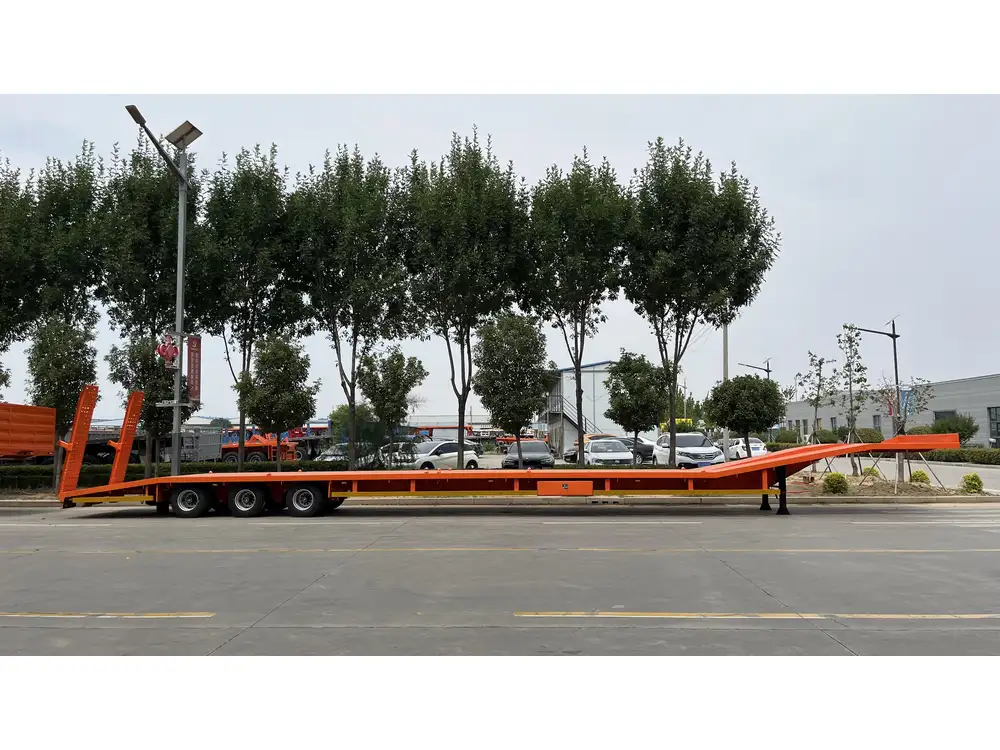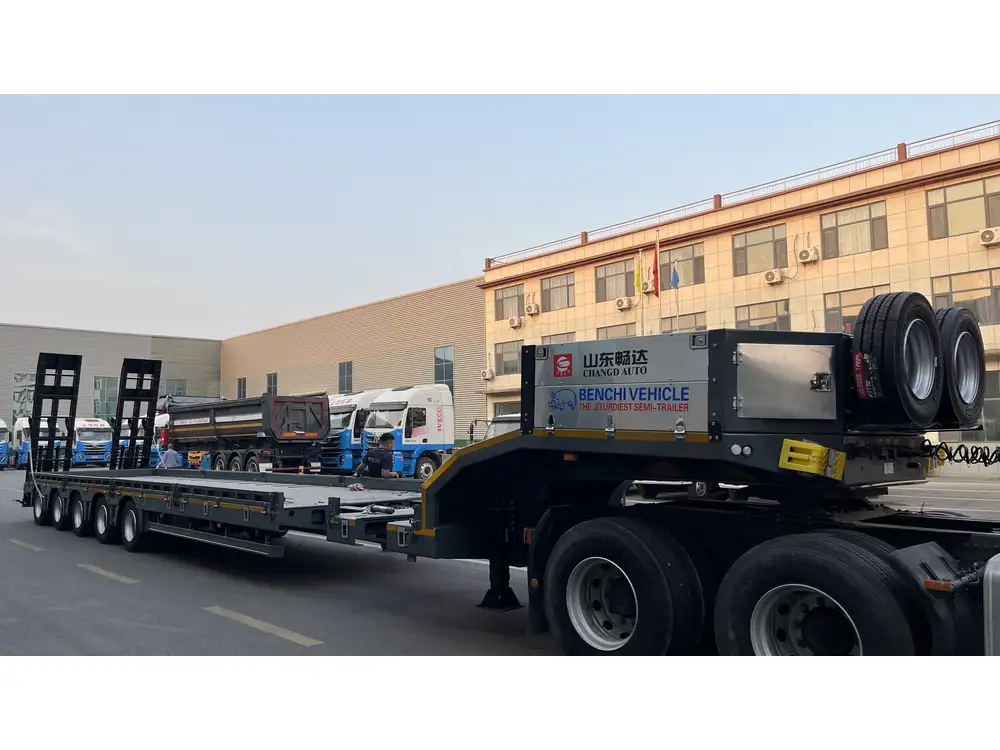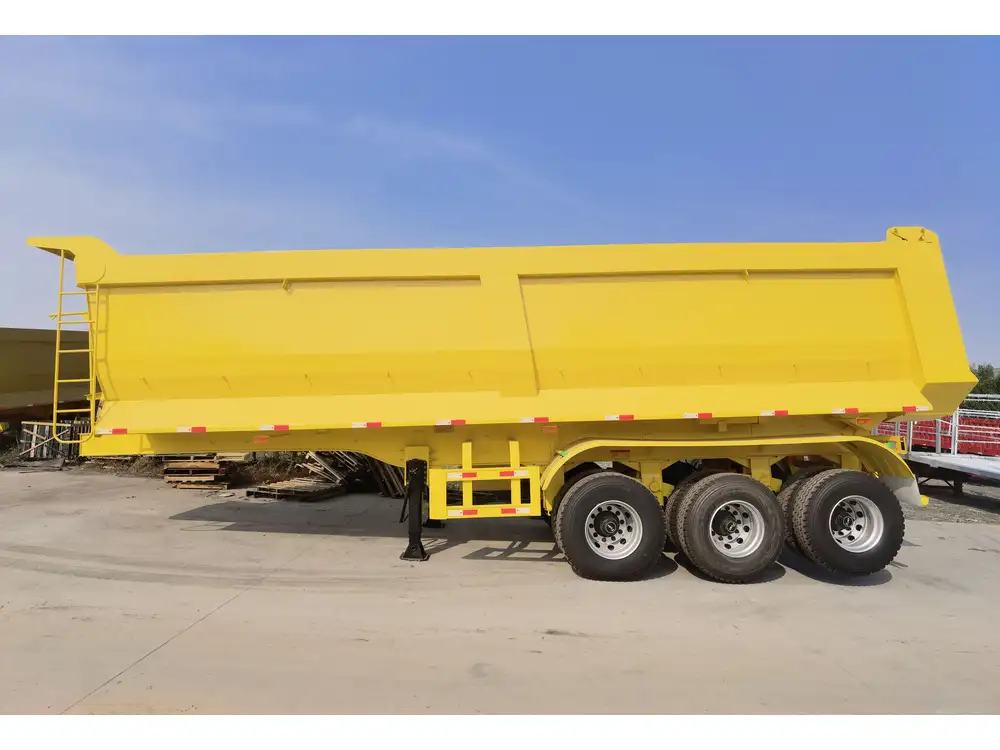Car carrier trailers are essential tools in the automotive logistics industry, providing efficient transportation solutions for cars. Given the growing demand for efficient vehicle transport, it’s crucial to discuss how many cars a car carrier trailer can carry, the factors that affect capacity, and various designs available in the market.
Types of Car Carrier Trailers
There are primarily two types of car carrier trailers: open and enclosed. Each type has its unique features, advantages, and limitations.
Open Car Carrier Trailers
Open car carrier trailers are designed to carry vehicles without external coverings. They are prevalent in the industry due to their cost-effectiveness and ease of loading and unloading.
- Capacity: Typically, an open car carrier trailer can transport anywhere from 4 to 10 cars, depending on the size and configuration of both the trailer and the vehicles being transported.
- Design: These trailers usually have multiple tiers, allowing for stacked placement of vehicles.

Advantages
- Cost-Effective: Typically more affordable than enclosed carriers.
- Quick Loading and Unloading: Vehicles can be driven on and off easily.
Limitations
- Exposure to Elements: Vehicles are exposed to weather conditions, dirt, and debris.
Enclosed Car Carrier Trailers
Enclosed car carrier trailers provide a protective cover over the vehicles being transported. They are often chosen for high-value cars, classic cars, or vehicles that need protection from the environment.
- Capacity: Depending on the design, enclosed car carriers usually accommodate between 2 to 6 cars.
- Design: These carriers are built with solid walls and ceilings, often with customizable interior arrangements.

Advantages
- Protection from Elements: Shields vehicles from rain, snow, and road debris.
- Security: Provides a safer environment for high-value vehicles.
Limitations
- Higher Costs: Typically more expensive due to additional materials and design complexity.
Factors Affecting the Capacity of Car Carrier Trailers

Trailer Dimensions
The overall dimensions of the trailer, including length, width, and height, play a significant role in determining how many cars can be loaded. Trailers are typically classified into:
- Standard Trailers: Often 48 to 53 feet long.
- Over-Dimensional Trailers: Usually longer than 53 feet and can accommodate specialized loads.
Vehicle Size and Type
The dimensions of the vehicles being transported drastically impact the number of units a carrier can handle.
Standard Vehicle Sizes
- Compact Cars: Average length around 14-15 feet; can fit more units in a single load.
- SUVs and Trucks: Typically 18-20 feet long; reduces total capacity.

Weight Restrictions
Each trailer has weight limitations that depend on the truck’s towing capacity and legal regulations. Exceeding these limits can cause safety hazards and legal repercussions.
- Gross Vehicle Weight Rating (GVWR): Determines the maximum weight a trailer can haul, including both the trailer and the cargo.
| Type of Trailer | Typical Capacity | Average Length | Average Width |
|---|---|---|---|
| Open Trailer | 4-10 Cars | 48-53 feet | 8.5 feet |
| Enclosed Trailer | 2-6 Cars | 20-40 feet | 8.5 feet |
Load Distribution
Proper load distribution is essential for safety and efficiency. An imbalanced load can lead to driving hazards, tire wear issues, and problems with trailer stability.
Loading Techniques for Car Carrier Trailers
Effective loading techniques can maximize the trailer’s capacity while ensuring safety and security.

Ramp Systems
Most car carrier trailers are equipped with ramps to facilitate easy loading. A well-designed ramp system can reduce loading times significantly.
Understanding Vehicle Weight and Balance
Knowing the weight of each vehicle helps determine how many cars a trailer can safely load. For example, placing heavier vehicles near the trailer’s axles ensures proper balance.
Utilizing Tie-Downs
Properly securing vehicles with tie-downs prevents movement during transport, reducing the risk of damage.

Visual Representation of Car Carrier Trailer Configurations
Having a visual understanding significantly aids in comprehending the configurations of car carrier trailers. Here existing examples provide clarity:
Open Car Carrier Example

Example of an open car carrier trailer loaded with multiple vehicles.
Enclosed Car Carrier Example

Enclosed trailer showcasing secure and weather-proof storage for luxury vehicles.

Choosing the Right Car Carrier Trailer
When deciding on the most suitable car carrier trailer, several factors come into play, including:
Purpose of Transportation
Identify whether you need to transport luxury cars, standard vehicles, or heavy-duty trucks. Your choice of trailer will differ based on this purpose.
Budget Constraints
Weigh the costs associated with each type of carrier against your budget. While open carriers are cheaper, they may not offer protection for high-value vehicles.

Operational Capacity
Consider your operational needs and frequency of transport. If your business demands frequent loading and unloading, opt for trailers that facilitate such activities.
Common Challenges in Car Transportation
Even with the best planning, challenges may arise during vehicle transport. Understanding these issues helps in creating effective solutions.
Damage During Transport
Damage can result from improper loading or inadequate tie-down techniques. Train your team and invest in high-quality securing equipment.

Weather-Related Postponements
Weather can impact transport schedules. Therefore, it’s prudent to plan routes with alternative options and always keep an eye on the forecast.
Compliance with Regulations
Always familiarize yourself with local and federal laws regarding vehicle transport to avoid fines and legal troubles.
Conclusion: Optimizing Your Car Carrier Trailer Experience
Choosing the right car carrier trailer involves a deep understanding of your transportation needs, regulatory constraints, and the specifics of both the load and equipment. By meticulously examining factors such as trailer type, vehicle size, weight distribution, and loading techniques, you can maximize efficiency and minimize risks.
We, as manufacturers specializing in semi-trailers, understand the nuances involved in car transportation. Our lines of car carrier trailers are engineered to meet the diverse demands of the market, providing numerous options tailored to various operational requirements. From maximizing vehicle capacity to ensuring security during transit, the ideal car carrier trailer ultimately contributes to the success of your logistics strategy.
For any inquiries regarding specific models, dimensions, or recommendations tailored to your transportation needs, please reach out to us directly, and we will guide you through the optimal selection for your vehicle transport requirements.



